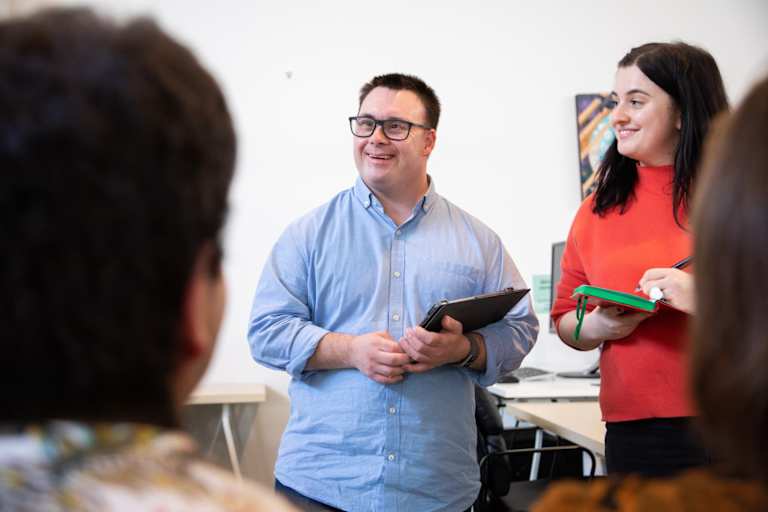How to Become an Licensed Counselor in Massachusetts
- Licensure Requirements
- How Long Does it Take?
- Out-of-State Licensing
- Licensing Renewal
- Salary Expectations
- Professional Organizations
- FAQ
Massachusetts offers mental health counselors, therapists, and school counselors above-average salaries and long-term employment growth. Learn about the education and training you need to meet Massachusetts counseling licensure requirements.
Massachusetts Counseling Licensure Requirements
Massachusetts offers three counseling licensure types: licensed mental health counselor (LMHC), licensed marriage and family therapist (LMFT), and school counselor.
The state Board of Registration of Allied Mental Health and Human Services Professions licenses LMHCs and LMFTs, while the Massachusetts Department of Elementary and Secondary Education licenses school counselors.
Application requirements for each license are listed below.
How Long Does it Take to Become a Counselor in Massachusetts?
While timelines vary by license type, you can expect to spend around 8-9 years completing Massachusetts counseling licensure requirements. You’ll first need to earn a four-year bachelor’s degree. Then you’ll enter a 2-3 year master’s degree program in mental health counseling, marriage and family therapy, or school counseling. After that, you’ll need a year or two to complete post-master’s training and pass your licensing examination.
Several factors can impact the time it takes to earn your Massachusetts counseling license. These include whether you study part-time or full-time, need extra time to complete prerequisites, and the time it takes to complete supervised experience hours.
Out-of-State Licensing Reciprocity in Massachusetts
LMHCs with current licenses in other states can apply for their Massachusetts counseling license by reciprocal recognition. Applicants submit NCMHCE scores, final educational transcripts, and verification of out-of-state licensure.
Massachusetts also provides reciprocity for MFTs licensed in another state during the prior three years. MFT applicants provide criminal background checks, official graduate transcripts, MFT exam scores, and license verification.
Out-of-state school counselor reciprocity is offered through an interstate agreement and requires an approved program verification form, a copy of the applicant’s license or certificate from another state, and verification of school-based employment under a comparable license for three out of the prior seven years.
How to Renew Counseling Licensure in Massachusetts
LMHC license renewal is required once every two years, on December 31 of odd-numbered years. Renewal requires 30 continuing education units. MFTs also renew their licenses every two years by completing 30 hours of continuing education during each renewal period.
Initial school counselor licenses are valid for five years. After completing three years of employment, school counselors can apply for their professional licenses. A professional license must be renewed every five years and requires 150 professional development points.
Salary Expectations for Counselors in Massachusetts
Depending on their speciality, Massachusetts counselors earn average annual salaries ranging from $54,000-$83,000, according to the Bureau of Labor Statistics (BLS).
The highest earners are educational, guidance, and career counselors, who made an average of $82,910 annually in Massachusetts, compared to $72,720 nationwide. Massachusetts ranked third for top-paying states in the educational, guidance, and career counselors and advisors occupation.
| Occupation | Average Hourly Salary | Average Annual Salary |
|---|---|---|
| Educational, Guidance, and Career Counselors and Advisors | $39.86 | $82,910 |
| Marriage and Family Therapists | $32.90 | $69,430 |
| Rehabilitation Counselors | $26.13 | $54,350 |
| Substance Use, Behavioral Disorder, and Mental Health Counselors | $30.78 | $64,020 |
| Counselors, All Other | $32.56 | $67,710 |
Professional Organizations for Counselors in Massachusetts
- Massachusetts Mental Health Counselors Association: MaMHCA supports counseling professionals, educators, students, and interns, offering continuing education resources, an annual conference, and employment help at its annual job and career fair. Other benefits include discounted professional liability insurance and licensure support.
- Massachusetts School Counselors Association: MASCA offers membership options to counselors in public and private schools, counselor education graduate students, and retired counselors. Member benefits include networking opportunities, professional development, mentoring, and an annual conference. MASCA is also involved in advocacy and legislative action.
Frequently Asked Questions About Counseling Licensure
Massachusetts counseling licensure requirements include a master’s degree, post-master’s training, and a passing score on the applicable licensure examination. Specific requirements depend on whether you want to become an LMHC, LMFT, or school counselor.


